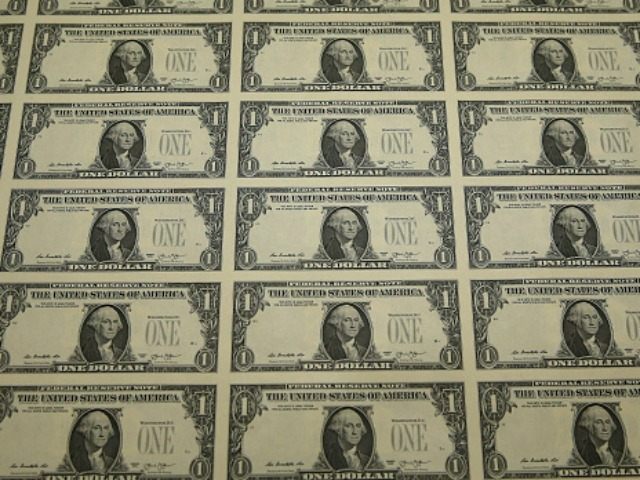In an interesting media twist, the Daily Beast has suggested that atheists calm down over the motto “In God We Trust” printed on U.S. currency, since in reality it is just one of a plethora of religious symbols of all sorts on American money.
The essay by Notre Dame Prof. Candida Moss came in response to the recent federal lawsuit filed by Sacramento-based attorney Michael Newdow in which he demands that all references to God on U.S. currency be dropped.
In his lawsuit representing 41 plaintiffs from Ohio and Michigan, Newdow argues that the motto “In God We Trust” places a “substantial burden” on atheists. A perennial atheist agitator who has pursued similar lawsuits in the past, Newdow argues that it is burdensome for atheists “to personally bear a religious message that is the antithesis of what they consider to be religious truth.”
In her essay, Moss (usually no friend to orthodox Christians) suggests that Newdow and the other atheists with their panties in a bunch over “In God We Trust” take a closer look at American currency, where they will find all sorts of other imagery potentially offensive to any number of people.
Moss suggests that Newdow and his cohort take a closer look at U.S. paper money, where they will find all sorts of esoteric depictions coming from Egyptian religions and Scottish Freemasonry. The harmless phrase “In God We Trust,” Moss argues, “is far less specific than the occult imagery that currently adorns the common one dollar bill.”
The pyramid, for instance, a throwback to ancient Egypt, is surmounted by a disembodied eye, the masonic symbol of the Great Architect of the Universe, and the reference to “Novus ordo seclorum”—a new world order—is often feared to refer to secret elites governing the global economy and pushing for a one-world government.
“In God We Trust,” on the other hand, was first printed on U.S. currency during the presidency of Abraham Lincoln, when a Pennsylvanian minister requesting some recognition of God in a national motto, and then was brought into universal use on all currency during the height of the Cold War in opposition to the “godless atheism” of Soviet totalitarianism.
Why is it, Moss wonders aloud, that today’s atheist activists have no problem with the eye or the pyramid, despite their association with the occult, and yet fiercely attack an innocuous phrase expressing trust in God.
One thing is abundantly clear, and that is the disconnect between Newdow with his small band of atheist militants and the American people, who religious or not seem to appreciate the importance of faith for the history of the United States and the character of her people.
When Newdow sued the Elk Grove Unified School District in March of 2000 in an attempt to have the clause “one nation under God” removed from the Pledge of Allegiance, the experiment backfired. Standing on the steps of the U.S. Capitol, 150 members of Congress recited the Pledge, complete with the “Under God” part. The Senate even passed a non-binding resolution by a vote of 99-0 to “reaffirm the reference to one Nation under God in the Pledge of Allegiance.”
Newdow latest attacks on American religiosity are likely to draw a similar response.
Follow Thomas D. Williams on Twitter @tdwilliamsrome

COMMENTS
Please let us know if you're having issues with commenting.